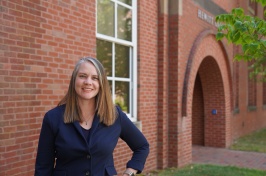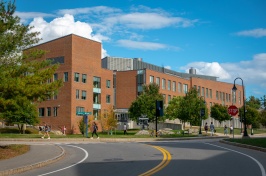UNH Scientist To Brief Congress March 24 on Space Weather Super Storms
DURHAM, N.H. - University of New Hampshire astrophysicist Harlan E. Spence will be one of four panelists at a Capitol Hill briefing tomorrow (Tuesday, March 24, 2015) on "super storms" that can have profound effects on America's economy, public safety and well-being.
The noon lunch briefing, "Super storms: Risk and resilience," will be held at the Senate Visitor's Center and focus on tornados, hurricanes and "space weather" storms. Spence, director of the UNH Institute for the Study of Earth, Oceans, and Space, will detail how violent solar eruptions create space weather that can influence the performance and reliability of space- and ground-based technological systems and endanger human life and health.
"Over the past century we have become an electric-based and space-faring nation dependent on technologies and infrastructures vulnerable to space weather and the societal implications it can have on electric power distribution, communication, navigation, emergency response systems and national security," says Spence.
Sponsored by the National Science Foundation (NSF) and the American Association for the Advancement of Science, the closed briefing for some 100 members of Congress will provide an overview of the current state of storm research and highlight NSF research in geosciences that has particularly high practical value to the nation. In particular, panelists will discuss work to improve risk assessment and hazard preparedness in order to mitigate vulnerability to storm impacts.
Other briefing panelists include Roger Wakimoto, assistant director for geosciences at the NSF, Jenni L. Evans, acting director of the Institutes of Energy and the Environment at Penn State, and professor Howard B. Bluestein of the University of Oklahoma School of Meteorology.
The University of New Hampshire, founded in 1866, is a world-class public research university with the feel of a New England liberal arts college. A land, sea, and space-grant university, UNH is the state's flagship public institution, enrolling 12,300 undergraduate and 2,200 graduate students.
Image to download: /unhtoday/news/releases/2015/03/images/harlanspenceheadshot-6265.jpg
Caption: University of New Hampshire astrophysicist Harlan E. Spence, director of the UNH Institute for the Study of Earth, Oceans, and Space
Credit: University of New Hampshire
Latest News
-
October 8, 2025
-
October 2, 2025
-
September 24, 2025
-
September 15, 2025
-
August 21, 2025















































